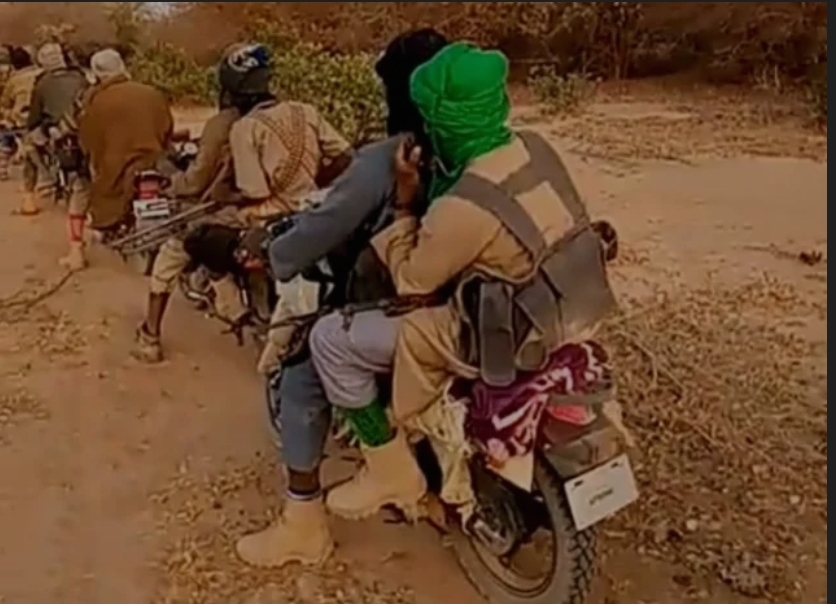Olayomi Koiki

Terrorists – locally dubbed as bandits in Nigeria have reportedly killed at least 10 farmers, including women and a Chinese national in Wayam and Belu-Belu villages in Rafi Local Government Area of the north-central state of Niger, with six of the victims beheaded and their heads taken away by the assailants.
Several residents were reportedly taken to a clinic in Kagara, the headquarters of Rafi LGA after the attack that occurred around 5am on Tuesday, during the morning prayers.
A resident, Bala Tukur, told local news outlet Daily Trust that: “At Wayam village near Madaka under Kagara town, they mercilessly killed 10 people and injured many. The way they killed us now is very traumatic, I swear. Everybody has fled.”
Tukur further explained that “many people have not been able to harvest 50 percent of their crops including maize.”
It was gathered that Kukoki villagers were recently forced to pay ₦1.5 million to harvest their crops, but the bandits returned just days later, with local sources lamenting increase in attacks as farmers across Wushishi, Rafi, Shiroro, Mariga, and Kontagora LGAs began harvesting.
On Friday, bandits invaded Zungeru, Wushishi LGA, moving through homes and a hotel, kidnapping occupants.
A Zungeru resident said, “Around 12 a.m. on Saturday, bandits invaded Zungeru town… they took Saidu Yakubu, known as Abacha, and his wife.”
In a statement, the Commissioner for Homeland Security, Brigadier General Bello Abdullahi Mohammed, acknowledged the incidents, saying: “The Niger State Government is very much aware. All the security stakeholders have been mobilised.”
Niger State Police Command’s spokesman Wasiu Abiodun told investigative news outlet Sahara Reporters that he needed time to confirm the report.
INSECURITY AND VIOLENCE IN NIGERIA
For more than a decade, civilians in Nigeria have faced multiple security threats and risk of atrocities as result of attacks, kidnappings and extortion by various non-state armed groups.
Since the start of 2024 civilians have faced intensified violence across Nigeria, and near-daily attacks by armed groups resulting in kidnappings and other abuses against civilians.
Armed groups and gangs, including so-called “bandits,” have – for many years – perpetrated widespread atrocities, including murder, rape, kidnapping, organized cattle-rustling and plunder. Armed herdsmen are also destroying vast swaths of farmland, prompting many farmers to abandon their land out of fear of attack.
In August, the Director General of the World Trade Organisation (WTO), Ngozi Okonjo-Iweala, said insecurity in Nigeria is weaponised by politicians for political and selfish reasons.
A Nigerian soldier, Suleiman S., also alleged that the government’s practice of paying ransoms to terrorists – dubbed as bandits in the country was hindering the military’s ability to effectively combat them.
He urged the public to redirect their blame from the Nigerian Army to the government, emphasising that soldiers are constrained by orders and cannot take independent action.
The soldier said the military has the capability to eradicate bandits, particularly in hotspots like Zamfara State forest within a week if given the necessary orders.
He expressed frustration that the military’s potential is being wasted due to a lack of direction from leadership, whom he accused of profiting from the ongoing crisis.
Nigerian authorities are not going to arrest Boko Haram terrorists, bandits, and other criminals because they were created for political purposes, human rights activist Omoyele Sowore had alleged in September.
Speaking when he appeared on Voice of The People FM, Sowore alleged that government officials have links with the criminals, using them to gain power and later protecting them.
